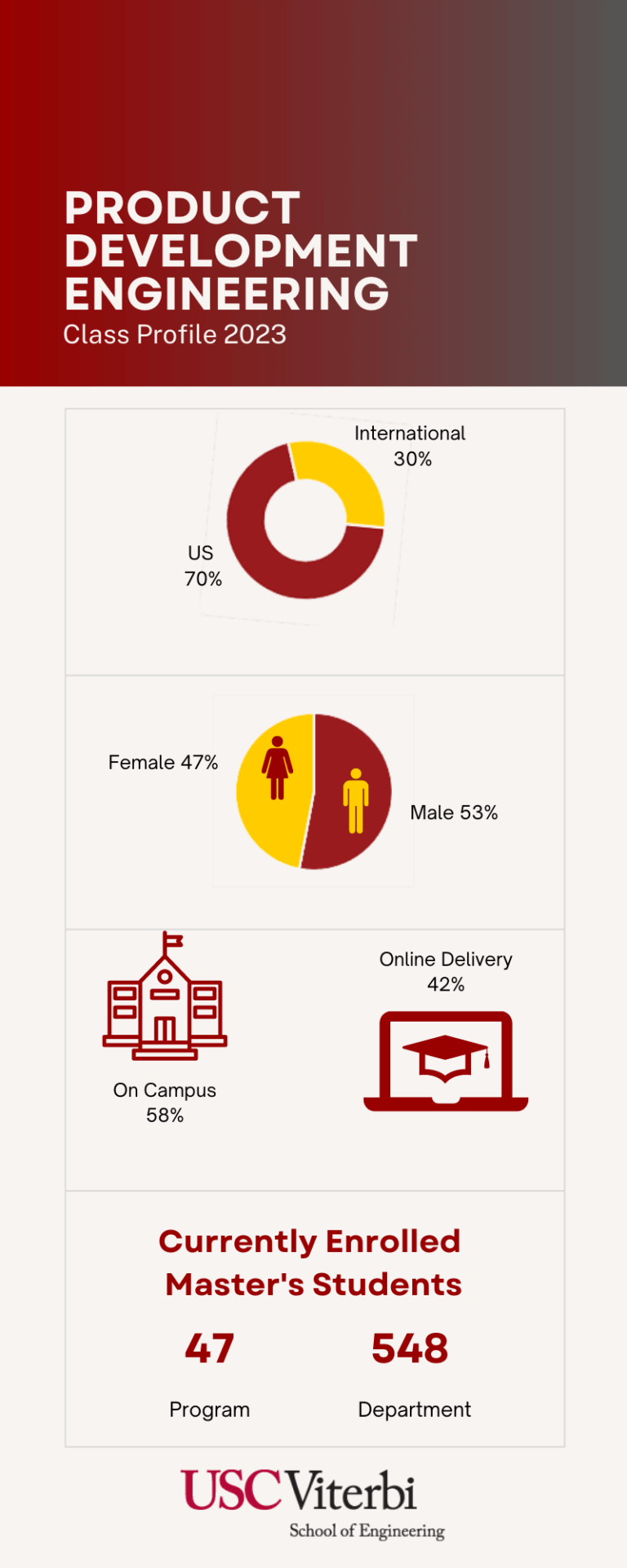The MS in Product Development Engineering is an interdisciplinary degree program jointly offered by the Aerospace and Mechanical Engineering and the Daniel J. Epstein Industrial and Systems Engineering Departments.
Developing new products is the essence of human intelligence in general, and engineering professions in particular. The growth of our economy has been largely determined by the engineer's performance and effectiveness in new product developments. The ever-increasing demands for product functions, coupled with low cost, high quality, and short lead-time requirements have made product development a very complex and inter-disciplinary activity. The recent high-tech revolutions and stringent environmental concerns have further contributed to the complexity of modern product development. There exists a great human resource need in the areas of new product developments.
There are three interrelated disciplines in product development: art, management, and engineering. The MS in Product Development Engineering program focuses on the engineering discipline, ranging from technology to systems. From the engineering viewpoint, product development can be seen as a process from invention, design, planning, production, to service phases. Three types of knowledge are needed for an engineer to go through these phases:
- knowledge to generate new product ideas
- knowledge to evaluate these ideas
- knowledge to structure and manage the development process
This innovative degree program provides students with an integrated education experience, including modern theories and practical experiences, to acquire this knowledge systematically so that they can accomplish these phases efficiently.
The MS in Product Development Engineering program is mainly a coursework-based program; students can choose to complete the program with or without a thesis requirement. This program has two areas of specialization (AOS):
- Product Development Systems (PDS): prepares the student to become a product development manager
- Product Development Technology (PDT): prepares the student for a professional career as a new product development engineer
Students entering this program must declare their choice of an AOS at admission, and follow the requirements of each AOS to graduate.
APPLICATION DEADLINES
| SEMESTER | DEADLINE |
| Spring | September 1 |
| Fall | December 15 |
Visit our Ready to Apply page for more information
ELIGIBILITY CRITERIA
Applicants to the master's of science programs in Product Development Engineering are required to have a bachelor’s degree or be in the process of completing a bachelor's degree. Degrees in any engineering or engineering-related disciplines are frequently represented among our program applicants, including but not limited to the following:
- Aerospace Engineering
- Aeronautics
- Mechanical Engineering
- Mechatronics
Applicants without a Bachelor’s degree in the preferred majors listed above will only be considered with coursework and demonstrated proficiency in the acceptable courses listed below (or equivalent).
|
| Computer |
| Engineering |
| Linear Systems |
| Physics |
Applications are reviewed holistically; simply taking these courses does not guarantee admission.
APPLICATION REQUIREMENTS
The following materials are required to be included with your online application:
- Transcripts
- Resume/CV
- Personal Statement
- Letter of Recommendation (3 highly recommended)
NOTE: The GRE is not required for 2025 applications.
The following link will take you to an overview of the tuition & fees for graduate engineering students, including payment information. Both on-campus and DEN@Viterbi students pay the same tuition
TUITION AND FEES OVERVIEW
Estimated Cost of Attendance - 28 Unit Program
Download the Cost of Attendance to see a summary of tuition and fees by semester. The document is a typical example and the number of courses, and time to complete the program, will vary by student.
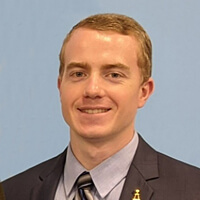 BRIAN HABING
BRIAN HABING
What were the main reasons you chose to pursue this graduate program at USC?
Four reasons, all starting with P: Program, Proximity, Professors, and Prestige. Program -I was questioning whether I wanted to study mechanical engineering or systems engineering or something else for my master's degree. When I discovered the Product Development Engineering program at USC, it immediately became my top choice. Other universities in Southern California did not have this program, so USC Viterbi became my only interest. Proximity -I work full-time in El Segundo and I wanted to study for my masters degree part-time at a local university where I could still go on campus to meet people, professors, and TAs, as needed. Professors -every USC Viterbi professor whose class I have taken has brought interesting insight and experience from industry. They are not pure academics in an ivory tower. They have applied the engineering or management techniques in their field and can incorporate those lessons into their lectures. Prestige -I wanted to study for my masters degree at a renowned institution withcapable classmates from around the country and the world.
Tell us about an exciting and unforgettable experience from your two years at USC.
Working through group projects with international students has been an unforgettable experience that I was not exposed to during my undergraduate program. I worked with students from Mexico, Germany, China, and Kuwait. Collaborating with them, hearing their insights, and working across time zones was a valuable and unforgettable experience.
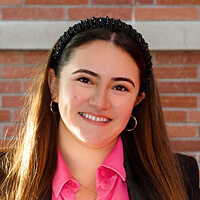 PATRICIA GARCIA
PATRICIA GARCIA
Tell us about an exciting and unforgettable experience from your time so far at USC.
My passion for utilizing a systems-perspective to collaborate across disciplines and design innovative, human-centered solutions to various 21st century challenges has driven my hunger to revolutionize the entrepreneurial world. As such, it was with no doubt in my mind that USC (given the vast opportunities for entrepreneurial growth the Trojan network) was where I was meant to be for my graduate studies. Coming from one the largest minority serving state institutions in the US, access to the resources such as those available at SC was nothing like I had experienced before. When I arrived at USC in August, I immediately immersed myself into the entrepreneurial culture that makes USC what it is today. This began by learning more about the opportunities available at theGreif Center for Entrepreneurial Studies. That day I was informed about the Athena Female Founders Pitch Competition and was highly encouraged to apply. After many weeks of coaching and perfecting my pitch, I was selected as one of the winners and awardedseed funding for my venture focused on creating more inclusive, sustainable, and community focused college campuses! However, that was just the beginning. I also had the privilege of attending the ATHENA Women’s Entrepreneurship Summit where I had the opportunity to listen to so many inspiring women who are revolutionizing their respective industries. Seeing this powerful representation of these incredible women (who have some sort of affiliation to USC) has empowered me to strive for more not only during my time at SC but in life. I am a strong believer in the idea of “you can’t be what you can’t see” and the ATHENA Summit absolutely provided me with a glimpse of what my future could look like because of the trailblazing women who have come before him. It means so much to be when I stand on national platforms pitching my venture because I would not be where I am today without the support of the Trojan family. I am proud to call myself a Trojan and could not imagine being anywhere else at this point in my life.
Which organizations/activities have you been involved with outside of the classroom?
I am a part of the Society of Hispanic Professional Engineers (SHPE), Society of Women Engineers (SWE), and Women’s Leadership Society (WLS) at USC Annenberg M{2e}. Outside of USC, I am a part of TECHNOLOchicas which is a national initiative of the National Center for Women & Information Technology (NCWIT) and Televisa Foundation.
2022 First Destinations Survey - Outcomes*
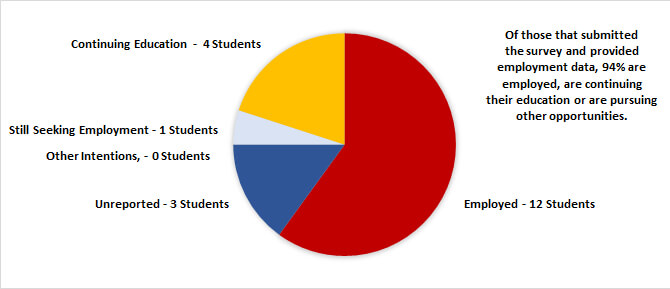
Alumni Employment - 2022*
(Companies & Job Titles)
- Abbott Diabetes Care - Design/Product Development Engineer
- Abbott Laboratories - Operations Professional Development Program
- Acumen Robot Intelligence Inc. - Product Manager Assistant
- Boeing - Structural Design Engineer
- Button - Associate Product Manager
- Capgemini Invent - Associate Consultant
- Edwards Lifesciences - Supplier Development Engineer I
- IBM - Associate Product Manager
- MAGicALL, Inc. - Mechanical Engineer
- Northrop Grumman Corporation - System Engineer, Graduate Mechanical Engineer
- Talis Biomedical Corporation - Consumables Engineer 1
.
Internships (Summer 2023)**
AesculaTech, Inc.; Social Finance, Inc.; TCW Global
.
.
* Information is based on a voluntary survey and should not be interpreted as a comprehensive view of the 2022 graduating class.
** Internship data is from CPT internships done by our international student population.
This program is also available online to professional engineers through DEN@Viterbi. Because the DEN@Viterbi program provides a fully equivalent academic experience, the degree a USC engineering student earns is the same whether they are on-campus or online.
If you are interested in beginning classes as a DEN@Viterbi student next semester, explore the requirements and steps to enrolling as a Limited Status Student.
Learn More About DEN@Viterbi
Detailed Program Curriculum and RequirementsSchedule of Classes
DEN@VITERBI ONLINE COURSE OFFERINGS
The following courses and program requirements serve as program planning for DEN@Viterbi students. Course offerings and availability are subject to change. Please consult with advisor if you have any questions.
| Depending on the academic background and career interests of students, the program offers two areas of specialization, product development technology and product development systems. The product development technology specialization will prepare students for a career as future product development engineers, while the product development systems specialization will prepare students as future product development managers. Students entering this program must declare their choice of an area of specialization and follow the requirements of each area of specialization to graduate. |
| Core Courses |
| Both classes required - 8 units. |
| ISE 445 | Principles and Practices of Global Innovation (4 units) |
| ISE 501 | Innovative Conceptual Design for New Product Development (4 units) |
| Management Specialization: Required Courses |
| ISE 515 required and ISE 544 OR ISE 585 required - 8 units. |
| ISE 515 | Engineering Project Management (4 units) |
| ISE 544 | Leading and Managing Engineering Teams (4 units) OR ISE 585 |
| ISE 585 | Strategic Management of Technology and Innovation (4 units) OR ISE 544 |
| Management Specialization: Technical Elective |
| Select two courses. - 8 units |
| ISE 514 | Advanced Production Planning and Scheduling (4 units) |
| ISE 525 | Design of Experiments (4 units) |
| ISE 527 | Quality Management for Engineers (4 units) |
| ISE 544 | Management of Engineering Teams (4 units)* |
| ISE 561 | Economic Analysis of Engineering Projects (4 units) |
| ISE 562 | Decision Analysis (4 units) |
| ISE 580 | Performance Analysis with Simulation (4 units) |
| ISE 583 | Enterprise Wide Information Systems (4 units) |
| NOTE: *Choose one that is not included as a specialization required course |
| Management Specialization: General Electives (Suggested) |
| Adviser approved electives must be upper-division 400- or 500-level courses. Up to 4 units can be transferred from other institutions. |
| One course - 4 units. |
| CSCI 567 | Machine Learning (4 units) |
| DSCI 552 | Machine Learning for Data Science (4 units) |
| ISE 460 | Engineering Decisions, Economics, and Ethics (4 units) |
| ISE 506 | Lean Operations (4 units) |
| Technology Specialization: Required Courses |
| AME 503 and AME 525 are required - 7 units. |
| AME 503 | Advanced Mechanical Design (3 units) |
|
| AME 525 | Engineering Analysis (4 units) |
|
| Technology Specialization: Technical Electives |
| Select two courses. 6-8 units |
| AME 505 | Engineering Information Modeling (3 units) |
| AME 527 | Elements of Vehicle and Energy Systems Design (3 units) |
| ASTE 523 | Design of Low Cost Space Missions (3 units) |
| ISE 576 | Industrial Ecology (4 units) |
| MASC 551 | Mechanical Behavior of Engineering Materials (4 units) |
| MASC 583 | Materials Selection (4 units) |
| SAE 549 | Systems Architecting (3 units) |
| Technology Specialization: General Electives (Suggested) |
| Students may take any AME, ISE or SAE 400 or 500- level DEN course for their general electives. |
| 4-7 units |
| AME 577 | Survey of Energy and Power for a Sustainable Future (4 units) |
| AME 578 | Modern Alternative Energy Conversion Devices (4 units) |
| ASTE 520 | Spacecraft System Design (3 units) |
| CE 529 | Finite Element Analysis (4 units) |
| CE 543 | Structural Instability and Failure (4 units) |
Please complete the following form for more information.





